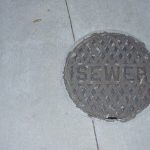Many plumbing articles offer a great deal of advice that’s typically geared towards property owners. But, many people rent a home, perhaps they are in college, or they are saving for their first home. Whatever the reason, the plumbing advice for renters is very different than it would be for the property owner. After all, you won’t want to invest a lot of time, effort, and money into a place that you don’t own, and your priorities are going to be very different. The focus is better placed on preventative measures that will keep you comfortable until a larger problem emerges that requires the landlord’s attention. Let’s look at four useful tips for people renting their homes.
1.Always Take a Tour of a Home
When you’re looking for a place to rent, it’s an exciting time, and it’s easy to take shortcuts when signing a lease. This temptation should be resisted; it’s important to check out the property carefully before you sign anything. This includes the home plumbing system; there are three main areas that you need to fully understand before you rent a home.
- Always ask the landlord to show you the location of the main water shutoff valve.
- Always test the shutoff valve because older valves can easily break under pressure.
- Ask the landlord to tag the shutoff valve to make it easy to locate in an emergency when you may forget the location.
- Understand the importance of the shutoff valve, turning this valve off will prevent even more water from flowing into the home where it will damage your property.
- Ask about the location of each individual shutoff valve for each sink and toilet in the home. These valves will help you to stop isolated overflow problems without shutting off water to the rest of the home.
2.Always Ask Questions
Every home has its own set of quirks and problems that you need to be aware of before you commit to a rental. Understanding these potential issues ahead of time will allow you to make an informed decision and help you to respond to these plumbing problems. There are three main plumbing questions that you need to ask your landlord as you take the home tour.
- Ask the landlord if there are any plumbing pipes that are prone to freezing in colder temperatures.
- Find out if there have been any sewer issues in the recent past or if there are any existing sewer line problems that you need to be aware of.
- Ask the landlord if there are any plumbing quirks or issues in the home that you should understand before you commit to a rental agreement.
3.Prevention is Better than the Cure
As a renter, you want to take a preventative approach to your home plumbing system. This makes your time in the home hassle free and prevents any damage that could take time to fix. There are five useful things that you can do to protect the plumbing system.
- Plumbing clogs are typically caused by an accumulation of material inside the drains of the kitchen sink, laundry room, shower, and tub. Soap scum caused by hard water becomes trapped in the drain, and it acts like a mild glue that other materials can adhere to, and this forms clogs. Adding a strainer to each drain in the home will catch a lot of hair and debris before it can enter the drain.
- Only flush human waste and toilet paper in the toilet because it’s not designed to handle any other type of material. It’s a good idea to get a toilet plunger to manually clear a clog in the toilet.
- Always set the water heater to 120ºF because this adequately heats the water all year round.
- Avoid using store bought chemical liquid drain cleaning products to deal with clogs. These caustic products can damage your plumbing pipes leading to water leaks and even localized flooding. Get a cup plunger to clear clogs in sinks manually because this is a better method.
- If you have a garbage disposal, be careful what you place in the unit.
4.Always Prepare for Winter
Winter is hard on any plumbing system; as a renter, you can always call the landlord if there is a problem. But, while the plumbing problem is being fixed, you may be without essential plumbing systems, and you may be very uncomfortable. This is why it’s a good idea to prepare your rental home for the colder winter months. Here are four things that you can do to get ready for winter without spending any money beyond the usual energy bills.
- Ask the landlord to show you where the shutoff valve is located outside the home. If your shutoff any outside water such as hose bibbs, it will help to prevent frozen pipes. This will avoid pipe bursts when the weather starts to heat up in the spring.
- When you are away from your rental home, don’t turn the heating off entirely. It’s a better idea to set the thermostat to 55ºF-60ºF to save money on your heating bills and prevent the internal plumbing pipes from freezing.
- The water heater temperature should be set to a “Vacation” or “Low” setting that keeps the unit running without expending too much energy.
- If you have doors or cabinets where home plumbing pipes are housed along an exterior wall, you should open them as much as possible. This simple trick allows the warmed air to circulate into these areas to prevent those pipes from freezing.
If you rent a home, it can be stressful if you have a plumbing problem, and you cannot get hold of the landlord. You can make your life easier by adopting some or all of these preventative measures. Aside from buying a toilet and cup plunger that you can take with you when you leave, none of these tips will cost the renter any money. It’s also a great idea to get an adjustable wrench and a set of screwdrivers to deal with minor issues such as replacing leaky faucet washers.
Call your
local certified plumber to identify and fix your major plumbing issues.
By Giovanni Longo President Flood Brothers Plumbing
Giovanni Longo is a 3rd generation master plumber who has been practicing his craft and trade in the greater Los Angeles area for well over a decade and a half. A plumbing and hydraulics-engineering innovator, Giovanni’s particular world-class expertise focuses on dealing with challenging sewer system designs as well as resolving complex commercial and residential draining issues. As a certified Flood Mitigation expert, he is also well versed in a wide variety of water damage and remediation solution.





